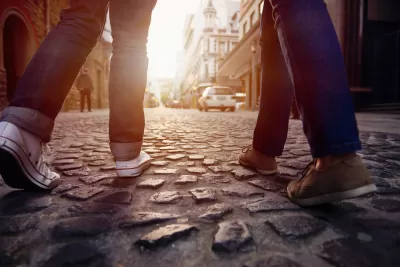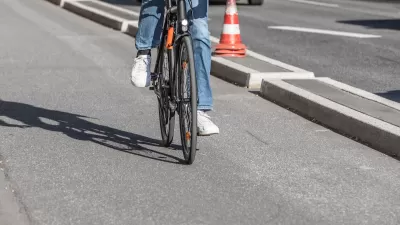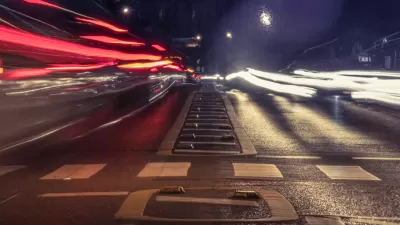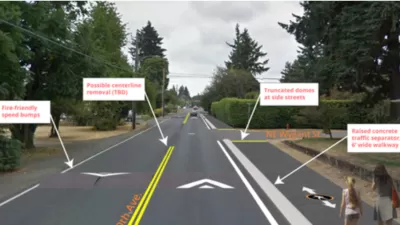Despite the high cost of car ownership, Americans walk less than almost any other nation, even for short trips that could be done on foot.

In 1797, future king of France Louis Philippe I wrote, upon visiting the newly formed United States of America, that “Americans are in the habit of never walking if they can ride.” Writing in Streetsblog, Kea Wilson reminds us that, even today, “Americans walk far less for transportation than residents of other industrialized nations.”
A study published in Sustainability reveals that “Of the 11 countries in the sample for which data was available for all trip purposes, the U.S. tied for last with notoriously car-dependent New Zealand among the populations that walk for the lowest percentage of overall trips (12 percent).” By contrast, walking made up 20 to 26 percent of trips in the U.K, France, Germany, Finland, and Norway.
“The authors of the study, though emphasize that there’s nothing that makes America an inherently pedestrian-hostile country — and that by adopting the transportation policies of our more active peer nations, we can overcome what may feel like an insurmountable collective obsession with cars.”
The study provides three key takeaways:
- It’s not just sprawl. Although Americans like to blame the country’s size and spread-out cities for a lack of walking, the study showed that Americans drive more often than their counterparts in other countries even for the shortest trips.
- Low-income Americans are often forced to walk, but also benefit from the least robust pedestrian infrastructure.
- American pedestrians are being killed at higher rates than elsewhere, and the problem is only growing.
FULL STORY: Exactly How Much Less America Walks Than Other Countries, In Five Charts

Planetizen Federal Action Tracker
A weekly monitor of how Trump’s orders and actions are impacting planners and planning in America.

Restaurant Patios Were a Pandemic Win — Why Were They so Hard to Keep?
Social distancing requirements and changes in travel patterns prompted cities to pilot new uses for street and sidewalk space. Then it got complicated.

Map: Where Senate Republicans Want to Sell Your Public Lands
For public land advocates, the Senate Republicans’ proposal to sell millions of acres of public land in the West is “the biggest fight of their careers.”

Maui's Vacation Rental Debate Turns Ugly
Verbal attacks, misinformation campaigns and fistfights plague a high-stakes debate to convert thousands of vacation rentals into long-term housing.

San Francisco Suspends Traffic Calming Amidst Record Deaths
Citing “a challenging fiscal landscape,” the city will cease the program on the heels of 42 traffic deaths, including 24 pedestrians.

California Homeless Arrests, Citations Spike After Ruling
An investigation reveals that anti-homeless actions increased up to 500% after Grants Pass v. Johnson — even in cities claiming no policy change.
Urban Design for Planners 1: Software Tools
This six-course series explores essential urban design concepts using open source software and equips planners with the tools they need to participate fully in the urban design process.
Planning for Universal Design
Learn the tools for implementing Universal Design in planning regulations.
Heyer Gruel & Associates PA
JM Goldson LLC
Custer County Colorado
City of Camden Redevelopment Agency
City of Astoria
Transportation Research & Education Center (TREC) at Portland State University
Camden Redevelopment Agency
City of Claremont
Municipality of Princeton (NJ)





























